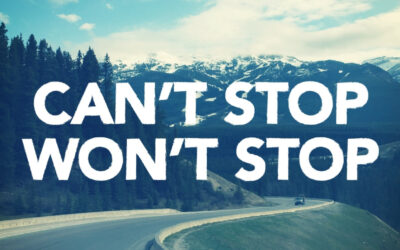It’s ski season, in some parts of the country anyway, which means Nordic ski racing for me. As I am about to embark on the biggest ski race of my career this weekend, the American Birkebeiner, it is good to remember to keep perspective. Please enjoy this piece I previously wrote on the topic.
Recently I competed in the Boulder Mountain Tour, a 32-kilometer point-to-point cross-country (xc) ski race. On race day morning participants are shuttled to the start area in buses, a 20 minute trip.
For the ride I sat next to a novice ski racer who was doing only his second xc race. As the bus traveled up the valley he nervously checked his gear, ate, and talked. Although he had competed in many other athletic events he seemed quite anxious about this race.
Contrary to his behavior though, he said he had “no expectations for the race” since he hadn’t done it before. Really! No expectations for a race he was clearly uptight about, had prepared for, traveled to, and paid to participate in?
As I sat in the lodge preparing for the race I heard others make the same comment, they had “no expectations for the race” although their conduct clearly indicated apprehension. Observing this inconsistency in words and actions made me wonder…
- How can you have “no expectations” yet be so tense?
- Who’s expectations are you managing?
- What exactly is at stake here?
Regardless of the event I can’t believe anyone would have “no expectations” of themselves. If that is the case, why even start? Although I had not done a competition of this level in a few years I had personal expectations. I wanted to ski at a high intensity with good technique, stay focused and positive and enjoy myself.
When someone says they have “no expectations” I believe they are managing other people’s expectations, not their own. They have exaggerated the importance of the race and are more worried about the outcome than the experience.
All that is at stake is a race result, nothing more. If you do well or you don’t what does it really matter? Your friends and family are not going to like you more or less if you win or lose, and if they do you should question their motives. And you aren’t going to suddenly become a better or worse person or different in any significant way. If successful, your confidence may be temporarily raised and you might receive some accolades from your peers. However, who you are at your core, your personal worth will remain unchanged.
When I was mountain biking professionally I didn’t have this attitude and thought my accomplishments would somehow transform my normal existence. Nothing really changed though and I was still the same person, living the same life, doing the same things.
Since I’ve learned that my personal value is in no way connected to the outcome of my athletics and only my expectations are what ultimately matter, I have enjoyed competition much more. I love challenging myself physically and I know that as long as I do my best and give my all to the performance there is nothing to regret no matter what the result. So, there is no reason to get too worked up pre-race and I can remain calm amidst the chaos around me.
What I have found is when you stop fixating on race times and finishing places and put that energy into your performance, you experience greater satisfaction and improved results.



